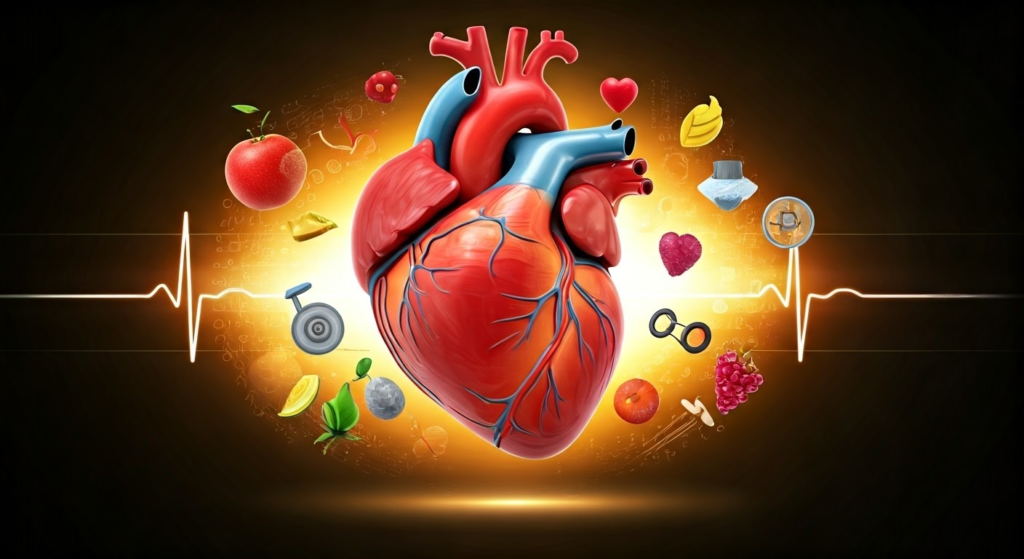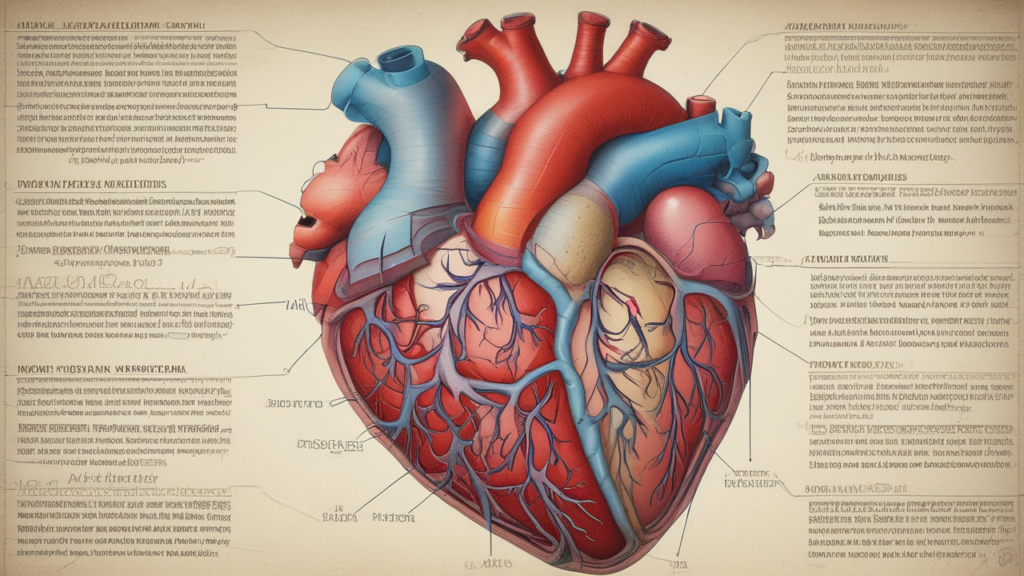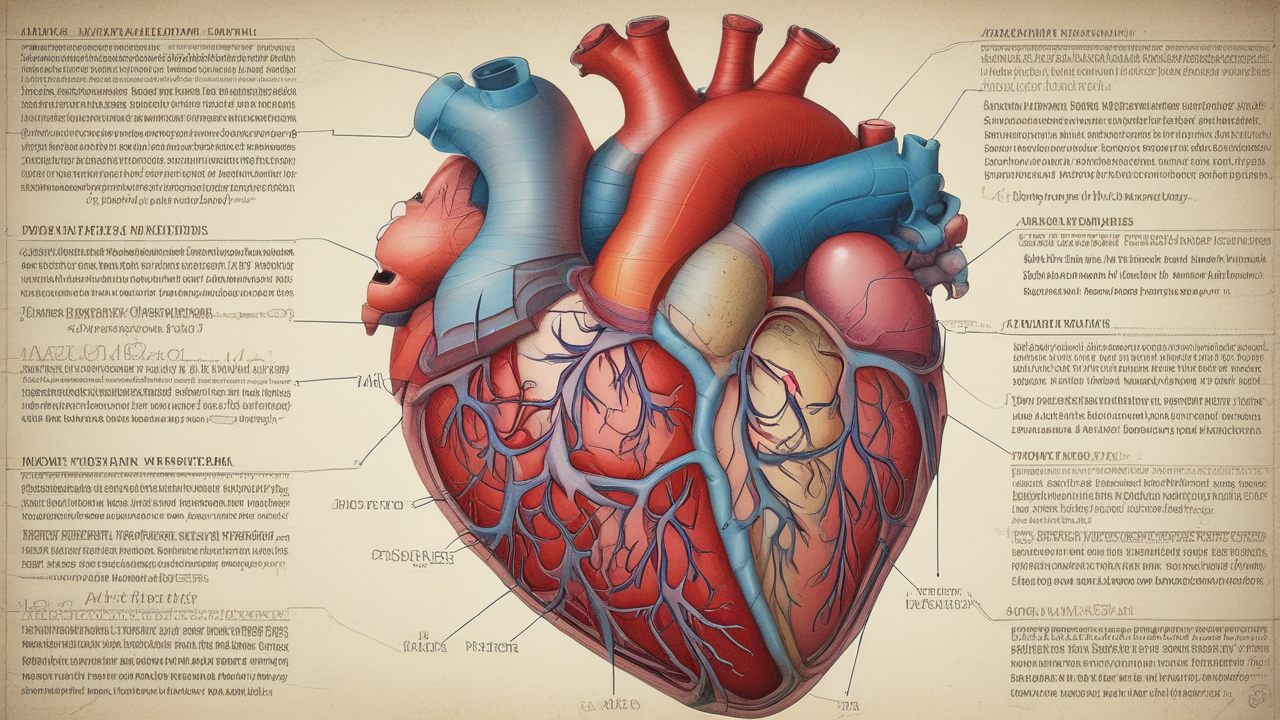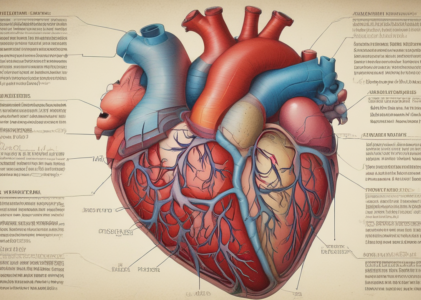Understanding Heart Health: Tips for a Stronger Heart

Key Highlights
- Understanding how your heart works is crucial for maintaining heart health.
- Heart muscle health plays a vital role in preventing heart diseases.
- Diet and physical activity are key factors influencing heart health.
- Knowing the signs of heart issues can save lives.
- Incorporating heart-healthy foods and exercises into your routine is essential for a strong heart.
- Regular check-ups and lifestyle changes are pivotal in preventing heart problems.
Introduction
Take a journey to learn about heart health. This is an important part of our daily lives that we often ignore. It is key to understand how the heart works and how it affects our overall health. By looking into the heart’s structure, functions, and the things that affect its health, you gain the knowledge to make smart choices. Let’s explore heart health together and work towards having a stronger and healthier heart.
The Anatomy of the Heart and Its Functions

The heart is an important part of the cardiovascular system, and understanding conditions like coronary artery disease (CAD) is essential. It has four chambers: the right atrium, left atrium, right ventricle, and left ventricle. The heart pumps blood all over the body, which is vital for good health. Blood comes into the heart through the atria, and then the ventricles push the blood out. Special valves help control blood flow by preventing it from moving backward. Knowing how the heart works and what it looks like is important to keep heart health a priority.
Understanding How Your Heart Works
Your heart is a strong muscle. It pumps blood all through your body, working hard all the time. This process includes the upper chambers, called atria, and the lower chambers, known as ventricles. They work together in a steady rhythm to make sure blood flows properly. Valves are very important too. They stop blood from flowing backward, which helps keep everything running smoothly. Your heart beats about 100,000 times every day. It changes its speed depending on how much oxygen you need. It listens to signals from your nervous system to do this. This ongoing cycle of pumping and relaxing keeps your body filled with oxygen and nutrients, which is good for your health.
The Importance of Heart Muscle Health
To keep your heart healthy, it’s important to know how crucial the heart muscle is. The heart muscle, known as the myocardium, helps pump blood through your body. When the heart muscle is strong and healthy, blood can flow properly. This flow is important to provide oxygen and nutrients to your organs and tissues. You can make your heart muscle stronger by doing activities like aerobic exercises and resistance training. This can improve how your heart works and lower your chances of heart problems. Taking care of your heart muscle is vital for your overall health and a long life.
Key Factors That Influence Heart Health

To keep your heart healthy, it is important to focus on a few key factors. First, eat a healthy diet. Second, engage in regular physical activity. Third, monitor your blood pressure levels. These actions can greatly lower the risk factors for heart disease and its complications. By living a balanced life with good eating habits and enough exercise, you help your heart work well and improve your overall health. It is also important to manage stress and avoid harmful habits like smoking to support long-term heart health.
The Role of Diet in Maintaining a Healthy Heart
A healthy diet is very important for keeping your heart in good shape. By eating foods full of nutrients, like fruits, vegetables, whole grains, and lean proteins, you can cut down the risk of heart disease and reduce the risk of heart attack. It’s also important to reduce saturated fats, trans fats, cholesterol, and sodium to help manage high blood cholesterol, blood pressure, and cholesterol levels. Eating fish, which has omega-3 fatty acids, is good for your heart too. Being careful about what you eat and drinking enough water can help support your overall heart health.
Physical Activity and Its Effects on Heart Strength
Engaging in regular physical activity is very important for making your heart stronger. Aerobic exercises, like running, swimming, or cycling, boost your heart fitness. This lowers blood pressure and heart rate. Resistance training, such as weight lifting, also helps build muscles, including heart muscles. Being active improves blood flow, which lowers the risk of heart disease. It helps keep a healthy weight too, which is good for protecting against heart issues. Focusing on physical activity is key to better heart health.
Recognizing the Signs of Heart Issues
Sudden chest pain, shortness of breath, and extreme tiredness are important signs that there could be heart problems, including heart failure, and symptoms of a heart attack. It can be dangerous to ignore symptoms like dizziness, nausea, or discomfort in the upper body. It is very important to know when to get medical help. Any symptoms that don’t have a clear reason could show underlying heart issues. If you notice these warning signs, acting fast can prevent serious health problems and even save lives. If you feel any of these symptoms, please talk to a healthcare professional for a complete check-up and diagnosis.
Symptoms That Should Not Be Ignored
- Shortness of breath, chest pain, and heartbeats that are not regular are warning signs you must pay attention to.
- Listen to your body. Unusual tiredness or feeling dizzy could mean there is a heart problem.
- Swelling in your legs, ankles, or belly without explanation should lead to a doctor visit.
- Don’t ignore symptoms like nausea, jaw pain, or heartburn, as they can be dangerous.
- If you have these signs, seek medical help right away. Early detection is very important for your heart health.
When to Seek Medical Advice
If you have ongoing chest pain, shortness of breath, or sudden dizziness, get medical help right away. Any unexplained pain in your chest or upper body, along with nausea, cold sweats, or tiredness, might point to a heart problem. Don’t wait to seek help if you feel uneven heartbeats or symptoms of arrhythmia like strong pressure in your chest. Ignoring these signs can be dangerous. Talk to a healthcare provider quickly to check for any heart issues.
Everyday Habits for a Healthy Heart
Foods that are high in nutrients, like fruits, vegetables, and whole grains, are good for your heart. Try to have regular physical activity. This should include both aerobic exercises and resistance training. You should also manage stress with practices like meditation. Make sure to get enough sleep too. Keep track of your healthy weight by looking at your body mass index and what you eat. Avoid smoking and limit how much alcohol you drink to help your heart stay healthy. Making healthy choices every day helps keep your heart well.
Foods to Include in Your Heart-Healthy Diet
Include different fruits and vegetables. Eat berries, citrus fruits, and leafy greens. They are full of vitamins and antioxidants. Choose whole grains like oats and quinoa to get fiber and nutrients. These are good for heart health. Add fatty fish like salmon to your meals. It has omega-3 fatty acids. These can help lower inflammation and the risk of heart disease. Also, pick nuts, seeds, and olive oil. They provide healthy fats that support heart function.
Exercises That Benefit Heart Health
Engaging in regular physical activities is good for heart health. Aerobic exercises like running, swimming, and cycling are great choices. They help improve cardiovascular fitness, lower blood pressure, and reduce the risk of heart disease, which is emphasized by the American Heart Association. Resistance training, like weightlifting, is also important. It strengthens muscles, including the heart. These activities improve blood flow, enhance heart function, and boost overall well-being. They are essential for a heart-healthy lifestyle.
Conclusion
In conclusion, taking care of your heart is very important. You can do this by eating a balanced diet while being mindful of calories, exercising regularly, and seeing a doctor for check-ups. Learn how your heart works and watch out for signs of heart issues. By adopting healthy habits, you can lower the risk of coronary heart disease and related problems. Managing stress, getting enough sleep, and staying away from tobacco are key to protecting your heart. Take control of your health today to keep your heart strong and healthy for many years.
Frequently Asked Questions
How often should I get my heart health checked?
Regular check-ups for heart health are important. You should follow what your doctor says. Usually, it’s good to get a heart health test every 4 to 6 years if you are under 40. As you get older, you need to do this more often. Keeping track of your heart health helps avoid future problems.
Can heart health improve with age?
As we get older, it is important to pay attention to our heart health and the health of our blood vessels. Aging can bring challenges, but living a healthy lifestyle can help improve it. Exercise often, eat a balanced diet, and manage obesity-related stress well. Talk to your doctor for advice that suits your needs.
https://www.nhlbi.nih.gov/health/heart-tests
https://www.nhlbi.nih.gov/health/heart-failure
https://links.e.response.mayoclinic.org/EmailPreview-GeneralHealth

